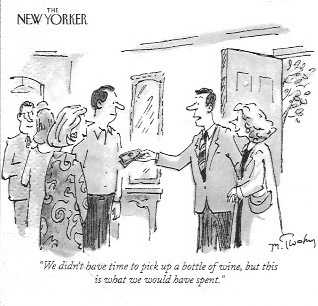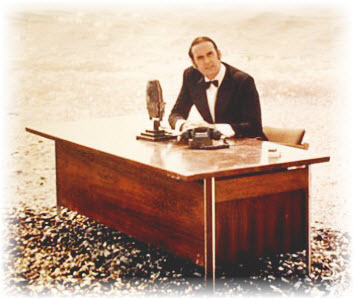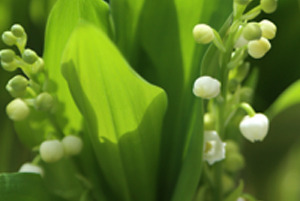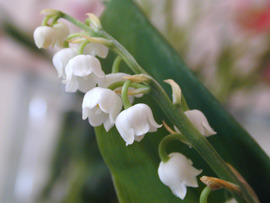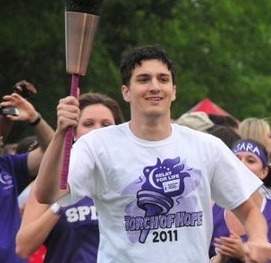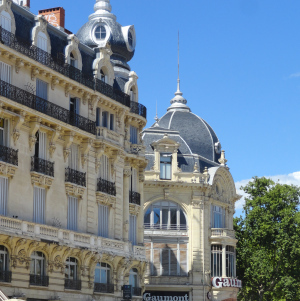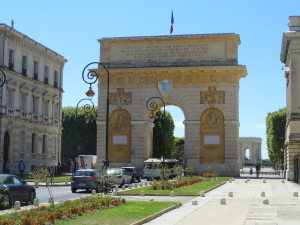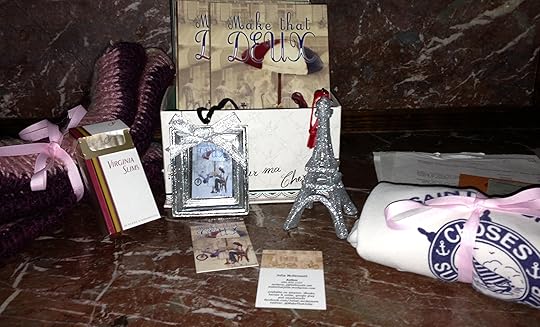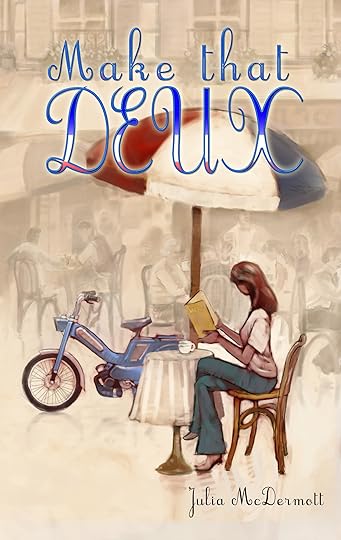Julia McDermott's Blog, page 23
July 19, 2013
Make that a Page-turner! (and cut it out)
While writing my upcoming Suspense novel, this is what I kept in mind: Make the reader want to turn that page. Make them want to know what happens next. Keep them wondering, and guessing.
You’d think that, in action scenes at least, that would mean get to the point, and move it along. Cut to the chase.
Well…yes and no.
Sometimes it does mean that – but not just in action scenes. In dialogue scenes and descriptions, my primary and continual goal was to move the plot forward, and to leave out anything that didn’t. Sometimes things moved quickly. But in some places, the idea was to move things along steadily – or somewhere between steadily and quickly.
Advance readers told me that – Yay! – this novel* IS a page-turner! But in working with my editor, I realized that one of the many things I needed to accomplish in revisions was to cut out unnecessary content.
Oops!
Basically, to cut to the chase. So, I (painfully) cut some things: if it wasn’t intriguing and/or necessary, it had to go.
[On the other hand, I had to (also painfully) add some scenes, tweak others and make several changes, which I did. But it was only painful at first; once I decided to get going, I dove in and kept on swimming.**]
Having spent time last week with lots of people who seem to encourage cutting to the chase when telling stories, it seemed appropriate that that was one of the things I was doing during my final revision to the book, whenever I had the time to work on it.
A different kind of “cut to the chase”:
What to do with what I had so carefully written, that now had to be removed? When I talked to my editor, she suggested that I save them and use them in upcoming blogposts, to show what might have been, kind of like “deleted scenes” in movies.
Perhaps. If it makes you wonder, and guess.
* The (one-word) title of which will be revealed in an upcoming post
** This (necessary) paragraph provides two clues to the aforesaid title; your guesses are welcome


July 17, 2013
“How is that romantic?” – 4 ways, and a comment
During a recent family vacances au Colorado, I was asked this question about Paris. Imaginez! (Imagine!) To be fair, I think the person who asked me has never been there. I joined in his conversation with another (male) family member about Italy and France, and I was probably the person who brought up the idea of romance. But when he asked the question, I was speechless at first. What was the answer, and how could he not know it? I started to say something about the history, museums and art, and then he they quickly seemed to believe that it was that simple, and didn’t let me explique.* Non, messieurs! C’est pas vrai! Because I’m an esprit de l’escalier** kind of woman, and a list-maker, I thought about it later, and here is the réponse I might have given: 1. It’s not just the art and history; it’s their relationship – their connection – to the people, and to the city. It’s something tout à fait français – absolutely French – and something you just feel. New York City and Washington D.C. have a lot of museums and history, but I don’t find either place particularly romantic. For other reasons, I really, really like them, though. 2. It’s the streets, the restaurants, the gardens and the neighborhoods of Paris…and it’s les français (the French) themselves. What (American) woman doesn’t know that Frenchmen are (normalement) très romantique? 3. It’s La Seine, the river that runs through Paris! A body of water*** (whether sea or river) at sunset or later, makes everything more intimate. How? Je ne sais pas.
4. It’s l’amour – love. It’s in the air in Paris, whether you’ve just discovered one another, or are rediscovering…Trust me.
Enfin, the “comment:” Another (short) conversation came up about becoming fluent in French, and someone (who doesn’t speak a foreign language) asserted that “you have to live there.”
Hmm. I diligently studied the language, il y a longtemps et récemment, lived in France for a year as a student, and now I practice and speak it autant que possible. I’d love to live there again un jour, but in the meantime, I’m going to continue speaking it and improving my fluency. C’est possible, madame!
Sunrise at a beach on the Atlantic in Florida earlier this year
* With over thirty members of the famille converging in two cabins in the Rockies for a week, it was hard to finish your sentences without being interrupted (and I’m just a belle-fille et belle-soeur – much nicer sounding than “outlaw” daughter- and sister-in-law)
** See my post L’esprit de l’escalier, spiral staircases and faux-amis
*** While there’s romance in my novel MAKE THAT DEUX, there’s more water than romance in my upcoming Suspense novel…. More later!


June 5, 2013
Vive la différence: “And now for something completely different”
En ce moment, I’m in between WIPs (works-in-progress). Make that, my WIP of the past two years has become a Completed Work – for now, I’ll call it CW – and is in the hands of my editor. My next WIP is not exactly “in progress” yet; I’ve only written two pages.
But I’ve chosen the title for it, have the plot outlined (très important, as you might imagine), and even know to whom it will be dedicated. All that remains is to write the dang thing.*
My CW will be released later this summer or early fall. It’s very different from my first novel, MAKE THAT DEUX, and my next work will be very different from my CW. N’ayez pas peur: I’ve begun writing the sequel to MAKE THAT DEUX, but some major changes to my draft are necessary, including the setting.
Because change is good.
Δ
The mathematical – and Greek – symbol for change
Which brings me to the title of today’s post: two expressions très bien connus – very well known, I dare say. Tout le monde knows what Vive la différence means; it seems as American as it does French. As for “And now for something completely different”….well (if you don’t know), that’s the title of the 1971 film spun from the television series Monty Python’s Flying Circus.
Actor John Cleese
It’s a great expression title, and it comes to mind when I compare my CW with MAKE THAT DEUX. The two novels are completely different, yet they share a few elements, such as scenes that take place in France (much fewer in my CW) and some lines in French…
Evidemment, I like doing, reading and writing different things, and I love memorable book and movie lines and titles. Perhaps ANFSCD was in my subconcious when I chose two characters’ names in my CW: Monty and John.
I also love French expressions, and I’ve learned some useful ones from my French prof. Here are a few that could describe some characters in my CW:
Elle a le coeur sur la main – She is very generous
Elle a du pain sur la planche – She has a lot of work (and things) to do
Elle est au bout du rouleau – She’s at the end of her rope
Il a un poil dans la main – He’s lazy
Il est timbré - He’s crazy!
Au fait (by the way), there’s more than one “She” and more than one “He,” as I’m sure you’ve guessed…
* Because now, it’s time for something completely different.


June 2, 2013
How I’m like my protagonist(s)
Remember that scene in the movie ELF when Buddy the Elf gets on an escalator for the first time? When he puts one foot on the moving staircase, holds onto both handrails and drags the other foot behind, doing a semi-split?
I’ve never done that on an escalator, but I’ve been known to get freaked out on them. If it’s impossible to hold the handrail – if I’m lugging large suitcases or carrying a heavy desktop computer – I almost can’t even get on. Elevators bother me, too, especially if I have to ride them alone; I always fear the thing will break down, and then I’ll panic so much, I won’t be able to call for help – or that if I can, it won’t come.
I’m able to dispel such elevator-fears if other people are riding with me. But then I always think of the fact that we’re suspended by cables, riding through space. Which arouses a whole new set of fears.
Jenny, the main character in my novel MAKE THAT DEUX, doesn’t have these phobias, but like me, she’s afraid of heights. Whether she’s in the Swiss Alps, the Medieval fortress of Carcassonne, France, or the Leaning Tower of Pisa, she’s afraid she’ll never make it down, or that one false move could be the end.
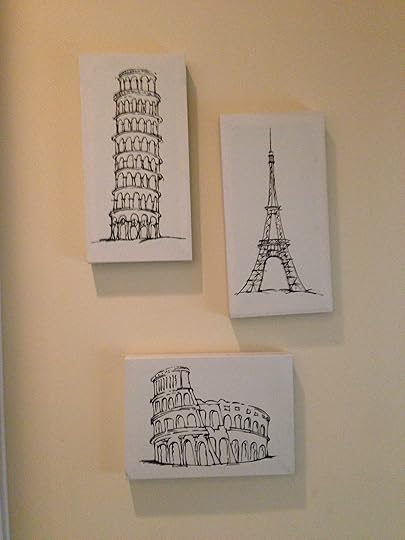 I’ve always been afraid of heights – that hasn’t changed – so it was natural to let Jenny have the same phobia since MAKE THAT DEUX is drawn from my own experience as an exchange student in France. Facing my phobia hasn’t cured it, malheureusement.
I’ve always been afraid of heights – that hasn’t changed – so it was natural to let Jenny have the same phobia since MAKE THAT DEUX is drawn from my own experience as an exchange student in France. Facing my phobia hasn’t cured it, malheureusement.
But here’s a list of places I have climbed or visited, in spite of my fear:
1. – 3. Those first three I mentioned above, where Jenny also went: the Alps, Carcassonne and the Leaning Tower;
4. The Colosseum in Rome (not a tower, I know, but it’s high)
5. (the top of) the Arc de Triomphe in Paris
6. Sacré-Coeur Basilica at Montmartre
7. (the top of) the Bell Tower at the University of North Carolina in Chapel Hill (I know, not that high, but still)
8. The “nosebleed” seats in the Georgia Dome and Turner Field in Atlanta, and in Sanford Stadium at the University of Georgia
9. The top of Stone Mountain, Georgia (I’ve hiked it several times, once while carrying a toddler all the way)
10. Numerous (steep) hiking trails in Arizona
11. The East Maui Volcano in Hawaii
12. Chateau Eza in Eze, France
13. The Empire State Building in New York
You may ask: What about the Eiffel Tower, pictured above next to the Leaning Tower and the Colosseum?I’ve walked over to it, but I’ve never ascended it. Last summer, in Paris with my husband, we decided it was too crowded to go up in the Tower (a good excuse).
However, I wanted to have a drink with him one evening, nearby or in it (if that can be done), to see it lit up at night. But we didn’t look into the possibility. Next time, perhaps.
I’m like Jenny in many other ways, but not all. Not even most, despite what those who know me might believe. The protagonist in my new novel (to be released later this year) is also like me in some ways. For example, “C” and I are of the exact same mind when it comes to jewelry: what we like and don’t like. And neither of us are fond of flying, though we do it.
But she’s her own person, with her own (deep) fears…
Stay tuned.


May 28, 2013
Par avion, with a kiss
Tell me that you’ll wait for me
Hold me like you’ll never let me go.
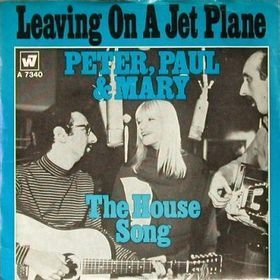
I’m leavin’ on a jet plane
I don’t know when I’ll be back again
Oh, babe, I hate to go.”
- John Denver
Every couple has certain songs they know by heart.*
Like Jenny, the protagonist in my novel MAKE THAT DEUX, I didn’t mind almost enjoyed flying when I was younger…unless I was leaving behind someone I loved.
What once was an event – for which you dressed up – has changed. It’s now just a method of transportation that’s full of hassles and short of comfort, with bags, meals, and even legroom charged à la carte.
But some changes have been positive. No more smoking (if you don’t remember that, watch Mad Men). Better security, if sometimes aggravating. Presumably, better made airplanes. Cheaper flights? I suppose so, in “real dollars.”
The estimated cost of my round trip ticket from New York to Paris in 1979 and 1980 (with UNC’s Study Abroad group) was $385. Sounds affordable, but according to a Consumer Price Index calculator, that’s equal to $1233 today. I recently booked a round trip ticket from Rome to Atlanta for a family member for $1268.
[I know it was $385 because I saved the Estimated Costs information for my Year-in-Montpellier Program (based on 15 students in the group). Academic fees were estimated at $1,646 for the year. Lodging was $450, and ten months of meals totaled $820.]
In MAKE THAT DEUX, Jenny travels en avion, en train, en voiture (by car) and en mobylette (moped). She doesn’t hate to go to France, but she does hate to leave someone behind. She does it though, with a kiss…
In my upcoming novel, to be released later this summer, the main character (“C”) travels here and there by plane with the man she loves. She’s older than Jenny, and, like me, she’s not fond of flying. But she gets to travel the way I wish I could: first class, and sometimes by private jet – with a kiss kisses.
I won’t say where she and her boyfriend (“R”) go, or what happens while they travel together. But in an instant, everything changes…
*What are some of “your” songs? Here’s a few more of ours: “ Danny’s Song” by Loggins and Messina; “ Chuck E.’s in Love” by Rickie Lee Jones; “ Lean on Me” by Bill Withers; and “Rescue Me” by Linda Rondstadt


May 25, 2013
“Why can’t WE be friends?”
My husband and I have many things in common, but certainly not everything.*
It’s the same way with most of my friends, and yes, he’s one of them – en fait, he’s my best friend. We believe that being each other’s best friend is not only possible, for us it’s pretty much imperative. Despite our “Mars/Venus” natures, we talk to each other, listen to each other and do things together.
And – we laugh with each other. Just like friends do.
Being each other’s best friend doesn’t mean we each don’t have other close friends. It also doesn’t mean we always communicate well, or that we always treat each other the way friends we should.
But we do keep trying.
Way back before we knew what we were getting into, we became friends (I kept telling him, “We’re just friends,” but luckily he didn’t take me seriously.) It was the 1970s, and a popular song was “Why Can’t We Be Friends?” by the group WAR. We’ve sung the chorus to each other many times since then:
Why can’t WE be friends?
Why can’t WE be friends?
Why can’t WE be friends?
Why can’t WE – EE be friends?
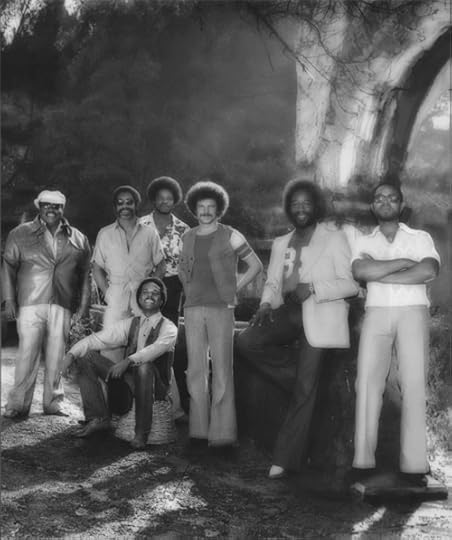
WAR
And we laugh when we do.
We became more than friends, but friendship is still a solid basis for our relationship. We like to hang out with each other. We encourage each other’s interests, whether we share them or not. Yes, we sometimes take each other for granted, criticize and even hurt one another – but we always forgive. We count on each other, and together we’ve faced more than one crisis.
What about other friends? And other family? Friends are people I met, got to know, and with whom I somehow connected – we accepted each other as friends. We talk, we listen, we do things, and we laugh. We don’t criticize, we don’t boss each other around, and we don’t (normally) offer unsolicited advice.
Family members (besides mon mari) can be, well, not exactly like friends. Yes, we met and got to know each other, but we may not have connected as friends. Because we’re related, we’re sometimes together. Hopefully, we accept each other, talk and listen to each other, and maybe we share some laughs. We probably interrupt each other more than friends do, though. Ideally, we don’t criticize or tell each other what to do.
But when things aren’t exactly ideal, I often wonder why we can’t be friends. Why we can’t just treat each other the way friends do.
The answer is, we could if we wanted to – it would be much more fun than WAR.
* Another one of our oft-repeated song lines is from Bob Dylan: “We like the same things. We wear the same clothes.” Well, we don’t anymore…


May 2, 2013
May in France, and fluency
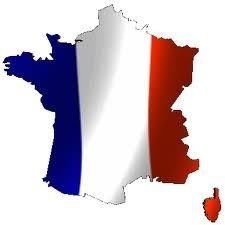
In my novel MAKE THAT DEUX, Jenny’s goal is to become fluent in French. She prepares for her final exams – often the only grade given in a course – by working hard in May, not noticing much about what happens in France that month. When she takes a (final) oral exam, she….
Well, you’ll have to read the book to find out.
During the month of May in France, due to several holidays in quick succession, almost every week-end is a long weekend (on fait le pont). Mais ici, we only have one of those (Memorial Day Weekend), and it happens after all of the French ones.
Yesterday May 1st was la fête du muguet, porte-bonheur et la fête du Travail (Labor Day). Next Wednesday the 8th is la fête historique armistice (WW II Victory in Europe Day). Thursday May 9 is a religious holiday (fête religieuse catholique), l’Ascension, though tout le monde celebrates it, même si they aren’t religious. Ditto for Monday May 20, which is Pentecôte (Pentecost).
Le muguet (lily-of-the-valley) is la fleur du bonheur: in France, you give loved ones a little bouquet of it for good luck (porte-bonheur) and to celebrate the arrival of le printemps (spring). I suspect that today through Sunday, on fait le pont (everybody takes a long weekend), or maybe just tomorrow through Sunday.
Le muguet
Next week, with the 8th and 9th falling on Wednesday and Thursday, I’m not sure what on fait/one does. Perhaps one takes a very long weekend, working only next Monday and Tuesday, in a kind of work-reversal week (2 days on, 5 days off). Sounds very French, I dare say.
The following weekend, one celebrates Pentecôte by taking a third long weekend.
Three long weekends in a row! Quelle bonne idée! On the other hand, could that be exhausting? Peut-être, Monsieur!
First, there’s only so much relaxing one can do; staying busy (working) may be less tiresome. Second, if one travels during a long weekend, it could cost more than staying at home. Even if one visits family (for free), one’s routine is interrupted. Third – well, my husband and I have a saying taken from a WSJ article dated some time ago: “Work is Home, and Home is Work.”
Yes, that’s right: we often feel “at home” when we’re at work (and since I actually work at home, it gets complicated; happily, I have a home office). But when we are at home, we may feel like we are working. Working on our house, our chores, our projects, our parenting (though we’re almost out of that business), our marriage…and beaucoup de choses!
That doesn’t mean that being at home (and not at work) is hard – but it can be, whether that’s evident admissable to others or not. Which brings me to fluency: the ability to speak a language smoothly and with apparent ease.
Some people have a gift for languages; others claim to be truly fluent when they aren’t (quite). I speak French, though not as well (yet) as I speak English. Fluency in another language can be hard to achieve, unless you learn as a small child. But if you work at it – practice it until you feel at home, no matter how difficult or confusing it may be – at some point it doesn’t feel like work anymore; on ne travaille pas beaucoup!
At least, that’s ce qu’on me dit! (what I’m told!)


April 18, 2013
Encore: “From the Author, and Behind the Scenes”
My friend Rachelle Ayala featured me and MAKE THAT DEUX in her BookChat post of April 9, 2013 in Rachelle’s Window…
Two sections in particular offer some insight about why I wrote the novel, and what was going on in my life while I did…
“From the Author:
A new world of adventure and romance opened up to me during my junior year of college when I was an exchange student in the south of France. Instead of living with a French family, however, I shared a beach apartment on the Mediterranean Sea with two other American girls, and I left my boyfriend behind in the U.S., unsure of whether our relationship would survive the time apart.
We three girls bought mopeds (mobylettes) to drive to and from our college campus in Montpellier, France, and we spent the year learning French, traveling and doing everything else that college girls do…
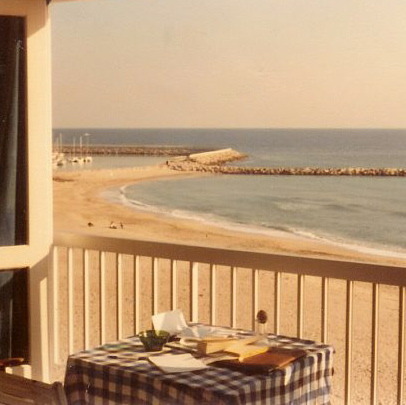
The year we shared made a big impact on me, and the three of us have stayed in touch since, even as our lives have taken different turns. When my children began growing up and moving out, I considered my long-held dream to become a writer. I decided to draw on my memories of my experience in France and write a novel set in the time I was there.
I felt that Jenny – with her innocence, naiveté and idealism (and that of her two roommates) – could be a fresh character in a literary world sometimes crowded with cynicism. While not everyone would identify with the girls’ belief in “The One,” many would relate to Jenny’s feelings dealing with a long-distance relationship, especially when other appealing men enter her life.
Through Jenny’s story, I wanted to show that even (and maybe, especially) for young people on the threshold of adulthood…
…love is possible and important, and that it’s okay not to want to “do life” alone, and to want to go through life with – and to love – another.
Behind the Scenes:
Lots of things happened while I wrote the book…
I got lots of feedback on different drafts of the story from my Writers Critique Group, several beta-readers, and some interested literary agents. I took all their advice to heart and revised the novel many, many times. I connected with one of the readers, who turned out to be the most helpful, through the friend of a friend.
Before I finished the novel, though, I took a break from writing/revising because one of my sons, age 19, was diagnosed with a brain tumor in May 2010. He had two surgeries and 5 weeks of radiation therapy and was able to go back to college as a sophomore that fall. His second surgery was performed at Duke University Hospital by the renowned neurosurgeon Dr. Allan H. Friedman.
My son faced his illness with courage, strength and hope, and cheered me on in my writing. He is now cancer-free and involved with raising funds for cancer research at his university, and he will graduate later this year.
Just before I published MAKE THAT DEUX, I traveled to France to celebrate a milestone anniversary with my husband.
We did a tour of the south of France, visiting Montpellier and Palavas, where I had studied and lived, as well as other lovely spots, then spent several days in Paris. I was thrilled to go back to visit the place where I had spent my year in France and to show it to him.
When we returned, my mother was diagnosed with non-hodgkins lymphoma. She moved in with us and had chemotherapy and radiation last fall, and she shared my excitement about publishing my book. Her cancer responded to treatment and she moved back home (a few miles away). She is now cancer-free.”
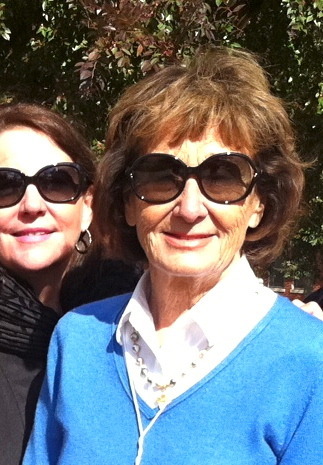 Mom and me at her college reunion in fall 2011
Mom and me at her college reunion in fall 2011


April 17, 2013
Make that TROIS (THREE)! My 3rd Guest Post…Merci!
Jill Edmondson, author of the Sasha Jackson Mysteries, invited me to write a guest post on her BLOG of today, April 17, 2013! Thanks, Jill!
Le sujet?
Dialogue! (and those pesky pronoms relatifs!) Let’s TALK about it!
Pre-book club dinner set-up: books + accoutrements. What do you recognize?


April 13, 2013
Une interview de 5 questions avec Rona. Merci, Madame!
My friend Rona Simmons has posted her recent interview with me about my novel MAKE THAT DEUX!
You can find mes reponses to her questions on the Review and Interviews page on her blog Write, Write, Write! Here’s part of Rona’s intro:
“As a member of the Atlanta Writers Club — purportedly the largest writer’s organization in the United States — I have had the opportunity to come to know a number of emerging and established writers and to read their works covering every genre, voice, and style and providing a wealth of innovative, insightful, and interesting reading.
A few weeks ago, I read a novel by fellow member Julia McDermott. A fun romp, the story follows the college age protagonist as she confronts a number of trials and tribulations during her Junior Year Abroad. Having learned that Julia herself spent time abroad, I was interested in exploring how much Julia drew from her own circumstances. I learned this and even more….”
Merci beaucoup, Madame! Voici les questions (cliquez sur son blog pour mes response, s’il vous plaît):
1. Describe your book and why you chose to write it
2. What is your favorite passage and why?
3. Can you share the evolution of a few sentences of your writing … one that you labored over, revised and revised, and revised until it was just right and one that flew off the keyboard in final form, why did you make the changes you made to the first one and why did you particularly like the latter as it was?
4. How did you edit your manuscript, assuming you did at least some editing yourself? Did you read it aloud? What do you think, if you did, reading aloud does that reviewing on screen or in hard copy does not?
5. Would you share a favorite passage from one of your favorite authors? What makes this passage special to you?



